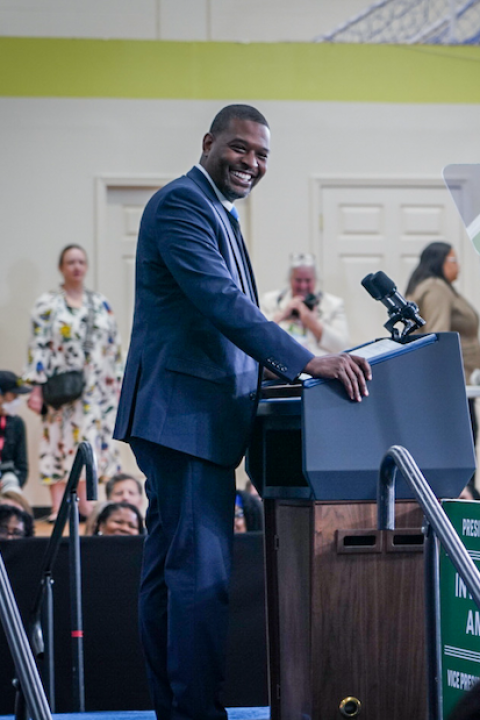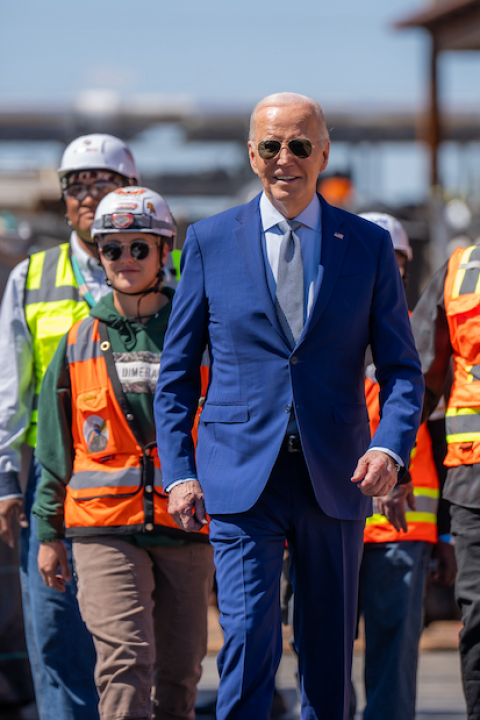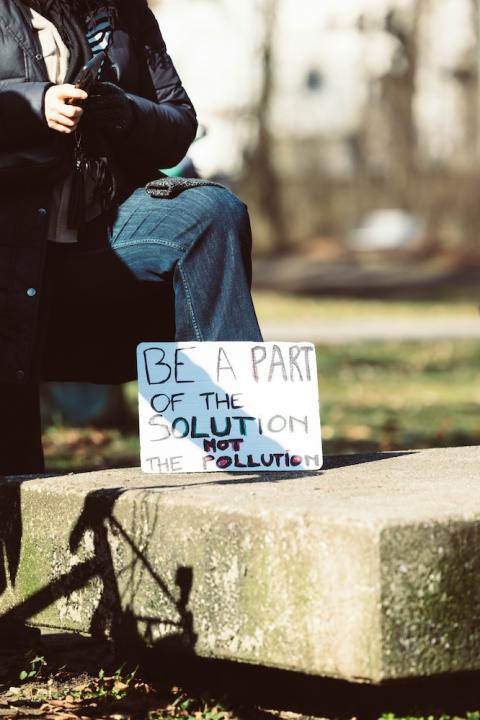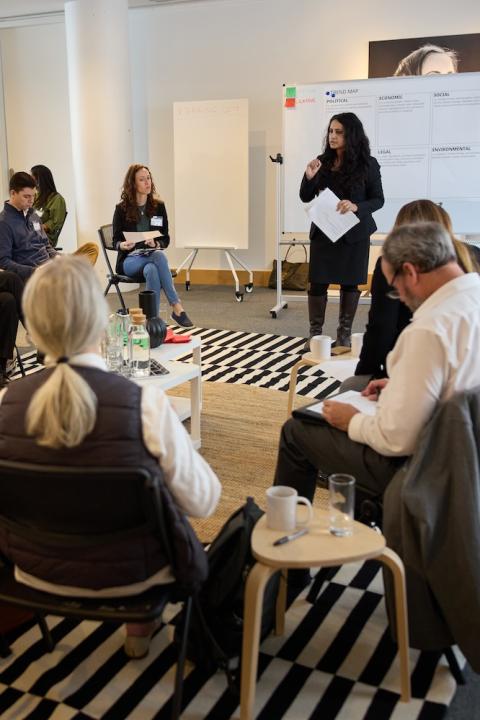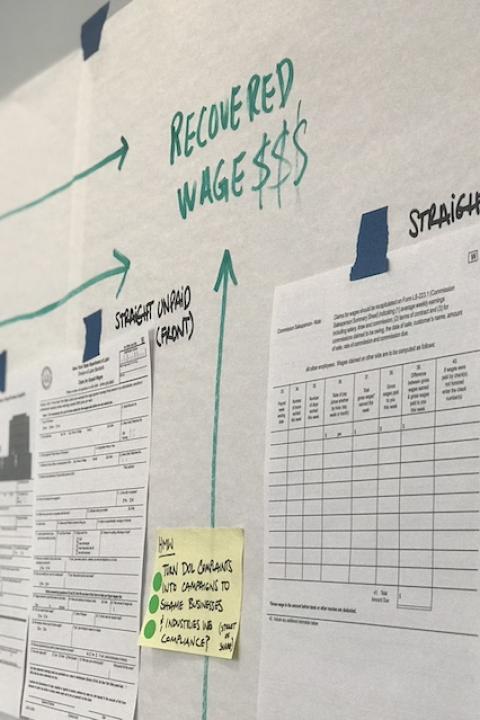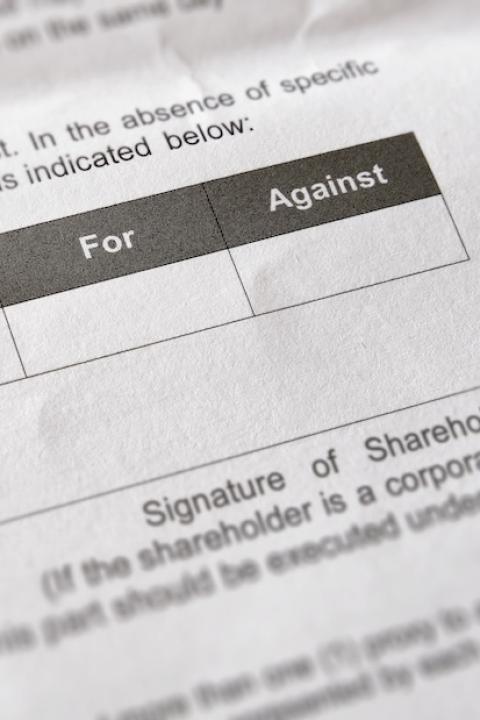
The First Amendment to the U.S. Constitution guarantees everyone the right to speak their minds without fear the government will punish them. But some business leaders say this basic tenet of American democracy is under threat, and they're taking legal action to make their voices heard.
Citing free speech concerns, more business leaders weigh in on Disney v. DeSantis
You may or may not remember the conflict between Florida Gov. Ron DeSantis and one of the state's biggest employers, Walt Disney Co., last year. Maybe you saw it in the headlines for a few weeks before forgetting all about it. But some say the implications of what happened between Disney and DeSantis could dampen free speech — and particularly corporate activism — for years to come.
So, what happened anyway? Here's a quick refresh. Florida's Parental Rights in Education Act went into effect in 2022. Labeled by critics as the "Don't Say Gay" law, the legislation effectively banned discussions of sexual orientation and gender identity in Florida public schools. Disney was initially slow to make a public statement. But after employees took to social media in protest, then-CEO Bob Chapek voiced opposition to the legislation at the company’s annual shareholder meeting in March of last year.
After Chapek's remarks, DeSantis and his administration moved to take control over the commercial district that includes the sprawling Disney World complex — which Disney was granted autonomy to operate over five decades ago. Disney responded with a lawsuit, arguing the state's actions were "patently retaliatory, patently anti-business and patently unconstitutional."
Others agree. Earlier this month, the Leadership Now Project — a bipartisan, pro-democracy group made up of 400 business leaders across industries — filed an amicus brief in Walt Disney Parks v. DeSantis. Latin for "friend of the court," amicus curiae briefs are filed by groups or individuals who are not part of a legal case but offer assistance to the court by way of insight or expertise. Leadership Now's brief in support of Disney makes the business case for the dangers of government overreach and retaliation against companies and executives for exercising their free speech rights.
"We've been concerned for some time about political retribution against companies starting to emerge in the U.S. political context, particularly in reaction to their use of free speech," said Daniella Ballou-Aares, CEO and cofounder of Leadership Now. "We decided to do the amicus brief on the Disney case because this had gone a step further. The governor of Florida had actually sought to enact legislation in response to Disney making a public argument around something they thought was important to their employees, customers and business operations."
Beyond Disney: Political retaliation casts a shadow on free speech in the U.S.
In his 2017 book "On Tyranny," renowned Yale University historian Timothy Snyder outlined 20 government actions that pose a threat to democracy, based on historical context across the 20th century. Political retaliation is one of them — and the Disney case provides a stark example as to why.
"It casts a pretty dramatic chilling effect on the free speech rights of corporations and individuals," Sean Burton, a Leadership Now member and CEO of the real estate investment manager Cityview, said of the Disney case. "Companies represent shareholders. They have employees, they have customers. And in this day and age, people want to know the values of the companies they do business with, and companies have to be able to react to that. They have to speak their mind on that issue without fear they're somehow going to end up in trouble with the government for legally protected speech."
In particular, Snyder discusses a phenomenon he calls "anticipatory obedience" — in which the government takes a strong action against one person or group for exercising a protected right, and people start to fall in line even before they're directly compelled to do so.
"It's part of the psychology behind tyranny and autocracy," Ballou-Aares said. "Companies and business leaders, without even being directly targeted, are going to modify their behavior based on this type of action and take steps they didn't need to take. That is a real risk factor, and educating business audiences that proactively taking actions they don't need to in response to this type of action will only invite more of it."
Business leaders push back
Through their brief, Leadership Now's business members not only hope to persuade the court in favor of Disney, but also to raise awareness of what they say are serious threats to free speech and democracy hiding in plain sight.
"A lot of people and business leaders see the media headlines about this kind of case and write it off as, 'This is just political and I don't want to get involved,' or 'Who knows what really happened?' But this is a very clear case of political retribution," Burton said. "Disney said something — they spoke their mind about an issue — and there was a very specific and public decision made to punish them and to interfere with a private contract, which is unprecedented. That's the kind of thing that happens in autocracies, not democracies. The hope of Leadership Now is to make people aware of that."
This isn't the first time Leadership Now has weighed in on a legal case with potentially far-reaching consequences. Last year, the group filed an amicus brief in Moore v. Harper, a landmark test of the "independent state legislature" theory, which asserts that state legislatures have the authority to set election laws without input from state courts, a position Leadership Now opposed. The case, which rose out of a gerrymandering dispute in North Carolina, made it all the way to the Supreme Court, which decided against the theory and upheld the right of state courts to review election laws. The group also weighed in on a 2020 Arizona case, in which the Supreme Court ultimately stripped away much of the Voting Rights Act, going against Leadership Now's position.
Business leaders beyond Leadership Now's membership are already responding positively to the group's action on the Disney case — and interest is expected to build as the case goes forward. "What we've found is a great deal of encouragement for this position," Ballou-Aares said. "This is an early phase in the case — we expect it can go to appeals, it could end up in the Supreme Court, or it could be that another case ends up taking precedent — so we thought it was important at this earlier stage to put this position out there, be able to engage and build support. As the case progresses, we can expect that others will join us or echo those sentiments as we get closer to the critical decisions in the case."
But the courts are only one way business leaders can push back. "It's important for business leaders not to sit by and watch it happen, but to be vigilant and be aware," Burton said. "Business leaders should be supporting candidates that are pro-democracy, not election deniers, but people who put democracy first, regardless of political persuasion. That's something that businesses can and should get more involved in." He listed analyzing financial support for political candidates and giving employees time off to vote as just two examples of how business leaders can get involved in a measurable way.
"A core value and reason for existence for Leadership Now is to make people aware that democracy is a critical issue for our country — and not just in the ways it's usually talked about, but critical in terms of economic growth, investment and the ability to raise wages," Burton said. "There's a real practical effect of these challenges to democracy and to this political instability. We would like business leaders to recognize that. And it doesn't have to be in a partisan way. This is not about politics, this is about stability."
Image credit: Patrícia Ferreira/Unsplash

Mary has reported on sustainability and social impact for over a decade and now serves as executive editor of TriplePundit. She is also the general manager of TriplePundit's Brand Studio, which has worked with dozens of organizations on sustainability storytelling, and VP of content for TriplePundit's parent company 3BL.





